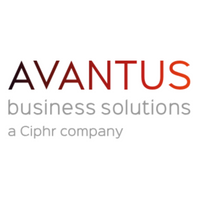How to use the power of recognition to deliver employee performance
Despite a topsy-turvy economy, ongoing cost-of-living crisis and slowing wage growth, businesses remain locked in a fierce battle for talent in the UK’s job market — and they need to come out swinging.
While pay remains a significant motivator for many, more and more employees are now looking at the bigger picture and asking: “What are current and prospective employers offering over and above a compensation package to make me join or stay?”
Flexible working arrangements might hog the headlines, and wellbeing programmes matter more than ever in this post-pandemic world. However, Gallup research says that many organisations are still overlooking an effective and easily implemented employee engagement strategy: employee recognition.
Here, we take a quick look at the benefits of recognition in the workplace. We’ll also explain how recognition can fit with performance management and share how you can implement it in your organisation.
What are the benefits of workplace recognition?
There’s a reason why we like to hear the words “Good job!” Being recognised by a manager or a peer can have a strong physiological effect: it releases dopamine, which stimulates the part of the brain that processes rewards and creates positive emotions like enjoyment and satisfaction.
Workplace recognition (and that fuzzy feeling inside) motivates employees, provides a sense of belonging and accomplishment, and makes them feel valued by their employer.
Recognition has also been linked to increased productivity and loyalty, leading to higher retention rates and improved profitability:
- Companies with a highly engaged workforce are 21% more profitable, according to Gallup.
- Employee engagement, productivity and performance are 14% higher in organisations with a recognition programme (Deloitte).
- 79% of workers say an increase in recognition rewards would make them more loyal to their employer (SHRM).
How does recognition fit with performance management?
Performance management ensures employees do their jobs well and helps companies reach their goals. Done right, it sets clear expectations, monitors progress, provides regular feedback and assesses results.
Consistent workplace recognition is a vital part of performance management, both on a macro and micro level. Beyond its role in communicating appreciation and motivating individual employees, it can also reinforce the desired culture of an organisation at large.
By demonstrating what success looks like, recognition becomes a powerful tool for aligning objectives, especially when tied to specific goals and achievements.
Ultimately, well-timed recognition helps shine a light on what employees are doing well, fostering a supportive and positive work environment. This positivity can carry over into one-to-one performance reviews, making them more constructive and less confrontational.
Examples of effective recognition and reward strategies
Several of the world’s leading companies use recognition programs to successfully enhance employee engagement and satisfaction.
- Google uses peer-to-peer recognition programmes and awards to celebrate employee achievements. According to Forbes, this helped them boost employee satisfaction by 37%.
- Virgin uses various recognition programs to celebrate employee achievements and contributions, including awards and public acknowledgement.
- Apple motivates employees through peer recognition and includes it as part of its performance management measures, involving feedback from executives, managers, and peers during performance reviews.
- Starbucks uses "Starbucks Partner Recognition" to highlight employee contributions with awards and public praise.
How to implement recognition in your organisation
While the companies mentioned above are major players in their respective industries, you don’t need their deep pockets to implement an effective recognition strategy.
Take inspiration from their approaches and do the following:
- Understand what motivates your employees: Conduct surveys or focus groups to learn what types of recognition matter most to your employees. Provide desirable and meaningful rewards to employees, such as gift cards, extra time off, or personalised perks.
- Set clear criteria: Define the behaviours, achievements, and milestones you wish to recognise. Make sure these criteria align with your company’s values and goals.
- Use various recognition methods: Incorporate formal and informal recognition methods, such as awards, certificates, public shout-outs, thank-you notes, and peer-to-peer recognition.
- Involve everyone: Ensure that recognition is given not just from the top down but also from middle management and peers. Train managers on how to recognise their team members effectively as part of performance management.
- Introduce a dedicated peer-to-peer recognition platform: Encourage employees to recognise each other’s efforts in a safe, user-friendly online space. Platforms like FlexGenius offer real-time recognition, provide immediate feedback, and boost employee morale.
In summary
To recap, workplace recognition is vitally important, both as an attraction and retention strategy and as part of ongoing performance management.
With a flexible reward and recognition platform like FlexGenius, powered by Avantus, you can enhance employee motivation and boost retention rates with innovative and engaging reward programmes.
This article has been supplied by Inbound Fintech on behalf of FlexGenius. Any queries please contact Liz Baker (IFT) or [email protected] (FlexGenius).
Supplied by REBA Associate Member, Avantus
Flexible Benefits & Technology specialist providing online, highly configurable platforms to Customers and Intermediaries worldwide.








